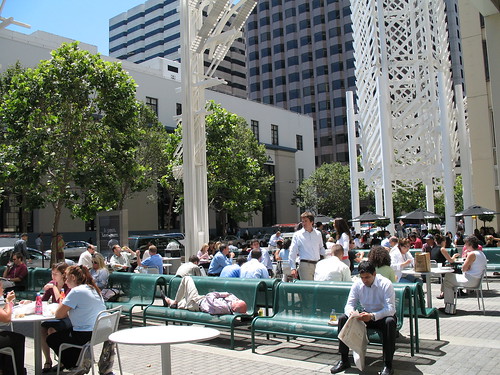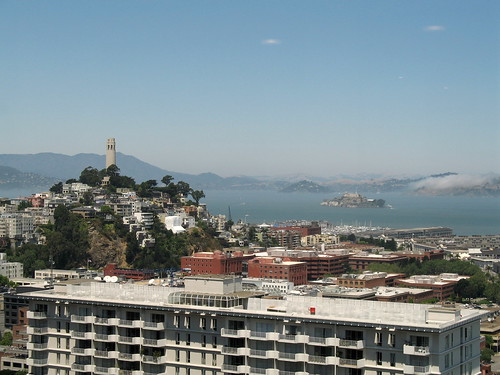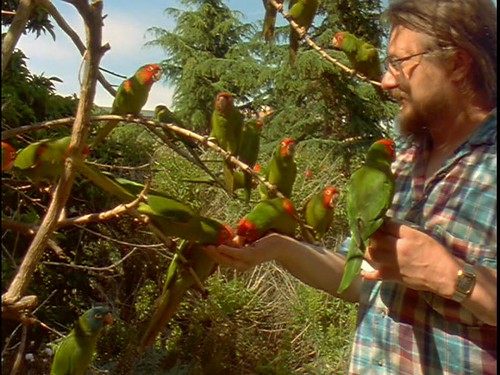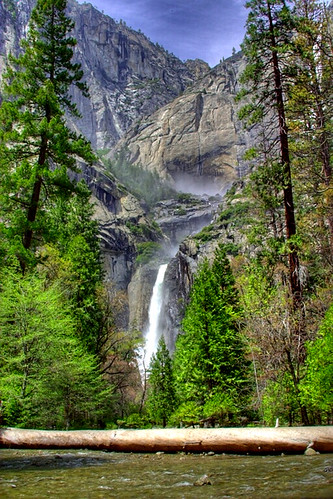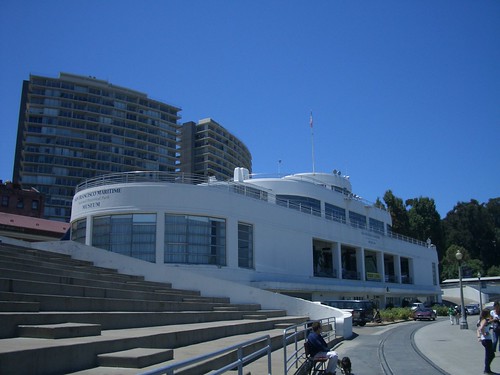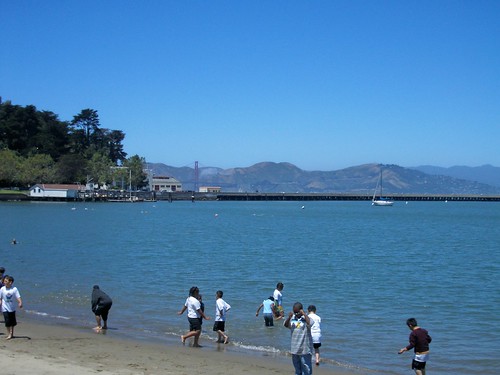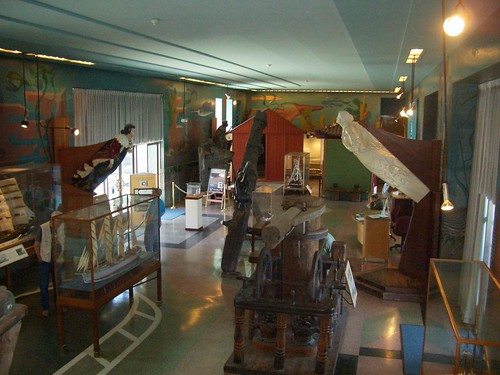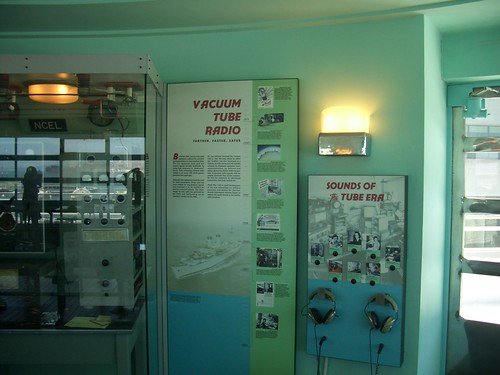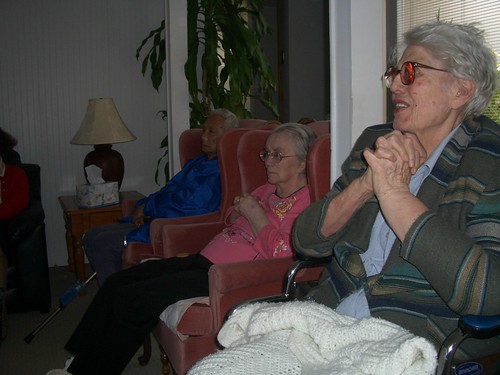Saturday, July 29, 2006
All You Have to Do Is Pass Another Law
If the State won’t enforce laws against illegal immigration, maybe it won’t enforce others. Scofflaws will scoff and wrongdoers will wrong. Police will be overstretched, if they aren’t already. (From daily observation there are many people who don’t fear getting caught for speeding, running red lights, or driving through crosswalks containing pedestrians).
That’s why I sympathize with the Minutemen, the group of volunteers who patrols the southern border. They are helping to enforce the law that various government agencies can’t or won’t. But what if the Minutemen armed themselves and started to shoot people who are attempting to cross? Our police would be obliged to stop them.
Imagine that our law enforcement looked the other way, perhaps because they were too weak or because they agreed with the group’s objectives. The Minutemen, emboldened, started firing heavy weapons, including rockets, deeper into Mexico. Most of us would agree that the Mexican military would be within its rights to cross into U.S. territory and force a halt to this violence against Mexican citizens and property. Death and destruction will reign on both sides of the border, the result of a weak State that could not enforce its authority over a powerful armed private group operating on its territory.
I am only speaking hypothetically, of course. This is the 21st century, and we are past such things happening. © 2006 Stephen Yuen
Thursday, July 27, 2006
Not So Hot
When you don’t know how to start a conversation, you can always fall back on the weather as an ice-breaker. Speaking of which, the ice ran out in supermarkets over the weekend as powerless residents scurried to preserve their thawing foodstuffs. [Why does “foodstuffs” sound more erudite than its component words “stuff” and “food”?]
The hot weather has gotten top local billing, even above the Middle East war. But the heat wave subsided a little on Wednesday, and many office workers took in some sun during the lunch hour.
As expected, the Chron is running the global warming stories that it’s been saving up for the year’s first extended heat spell. The polar ice caps will melt, sea levels will rise by three feet and coastal residents will lose their beachfront property. This will all happen around 2100, so we’d better stop driving, flying, and barbecuing today so that my great-grandchildren can go to Malibu. I wish the Chron would concern itself about something that could affect me, like the collapse of Social Security around 2030, but I guess that’s too far off to worry about.
Walking in the heat for a couple of blocks made me bypass the burger and burrito stands, so I picked up a salad. Unintended beneficial consequence of global warming: a yearning for more nutritious foodstuffs. © 2006 Stephen Yuen
Tuesday, July 25, 2006
Slightly Cooler
At noon there are still remnants of the morning fog. Monday was slightly cooler than Saturday and Sunday, which experienced over-100-degree highs. I was glad to be indoors, and the air conditioning held up despite brownouts elsewhere around the Bay.
© 2006 Stephen YuenSaturday, July 22, 2006
Local Warming
Wasps had built another nest under the top board of the fence. So that’s why they were still buzzing around the house. The process had become routine: Spray, let sit, knock the nest down. Later, three prodigals returned, circling where their home had been. Tough luck, boys, your business isn’t welcome here.
It’s nearly noon, and I’m dripping. Time to take a shower then go to the shopping center to cool off.
I’ve had bad luck with digital cameras. The first, a Kodak, stopped working when the lens mechanism jammed. The second, a Canon, ended up on the bottom of Monterey Bay when my kayak overturned. The third, another Kodak, was left on the train about a month ago. (Given my culpability, “bad luck” is a charitable description.)
For the next purchase I’m leaning toward a Canon A620. First, given my “luck” and level of photographer’s skill, I shouldn’t spend more than two hundred fifty dollars; anything more would be a waste. Second, the A620 has an optical viewfinder, a feature that is becoming rare in even more expensive cameras; maybe it’s my aging eyes, but I find it difficult to frame an outdoor shot just using the LCD. Third, it has at least 6 megapixels---actually 7.1—and I need more MPs because, well, just because. (For humble weblogging, the experts say 3.2 MPs are perfectly fine.)
Comparison shopping at Best Buy, CompUSA, Fry’s, Brooks Camera, and Costco showed the lowest price to be at Costco online for about $215. (Adding the shipping charge—Costco online also charges sales tax---makes the indifference price at a bricks-and-mortar retailer to be around $230.) For some reason that I’m not quite sure, about--is this the right model? will someone put this camera on sale?---I’ve resisted making the purchase.
A military mom sent me an e-mail a couple of days ago. Sears will make up the difference for up to two years between the salary and benefits that a reservist employee would lose if he was called up to active duty. A commendable program and worthy of support. My decision is made: when I do buy the camera, I’ll pick it up at Sears though it’s a few dollars more.
[Update: we cooled off in the theater this afternoon. Pirates of the Caribbean: Dead Men’s Chest is fun and energetic, with dazzling special effects. Johnny Depp hams it up by mashing together Han Solo. Errol Flynn, and Liberace. At two and a half hours, the movie is a good popcorn value.] © 2006 Stephen Yuen
Tuesday, July 18, 2006
Wild Parrots of Telegraph Hill
A revelatory documentary like The Wild Parrots of Telegraph Hill perhaps pinpoints the real reason: the joy of discovering unfamiliar aspects of a familiar place. For 18 years I have looked out the window at Telegraph Hill, where unbeknownst (to me, at least) escaped conure parrots have multiplied into a flock that now numbers well over one hundred. The parrots have acclimated well to San Francisco, where the main perils are not cold weather but insufficient food and the red-tailed hawks who can swoop down on inattentive birds.
The film also tells the story of Mark Bittner, the pony-tailed musician who came to San Francisco in search of fame, fortune, and purpose. He found the latter by caring for injured members of the flock (and may well finally achieve the former as this “little” movie grows in popularity). Mark Bittner subsists on the largesse of others and seems untroubled by his economic circumstances; what worries him is the welfare of the birds.
The parrots have names like Mingus, Connor, Picasso, and Sophie. We observe their interactions with each other and their relationship with Mark. Playing on our anthropomorphic instincts without overtly manipulating them, the movie brings along the audience so that it listens more closely to a statement by Mark near the end that it would have dismissed had it been made at the beginning:
All life is one whole, it really is. There’s a story that the [Zen Master] told. He went to Yosemite. He sees this big waterfall coming over this cliff. It’s one river at the top of the cliff. But as it falls the river breaks up into all these individual droplets. Then it hits the bottom of the cliff, and it’s one river again. We’re all one river till we hit this cliff. That distance between the top of the cliff and the bottom of the cliff is our life. And all the individual little droplets think they really are individual little droplets until they hit the bottom, and then they’re gone. But that droplet doesn’t lose anything. It gains. It gains the rest of the river.© 2006 Stephen Yuen
Friday, July 14, 2006
The Middle East: Pray for Us All
In a couple of months it will be the fifth anniversary of 9/11. The war against radical Islam will have lasted longer than America’s participation in World War II, and the end is not in sight. Those who think the present course in the Middle East is mistaken and/or lost may think that they know the ultimate result, that the U.S. will slink out of Iraq, beaten and exhausted.
But there is another end to the story. The President’s remaining term is two and a half years, and his past behavior shows that he’s not inclined to leave major problems for the next guy or gal to handle. (Witness the failed effort to fix Social Security, an important but not urgent issue.) He’s been compared to Harry Truman, the non-intellectual Midwesterner who was stymied by the stalemate in Korea.
But I’m thinking about the decision Truman had to make at the beginning of his term, perhaps the grimmest decision ever made by a moral leader. Hundreds of thousands died in Hiroshima and Nagasaki in order that many more—on both sides---might be spared the climactic battle for the Japanese homeland.
President Bush will weigh similar decisions soon in the matter of Iran, Syria, and North Korea, and many innocents may die. Somewhat ironically, the passion of his domestic opposition has given him a free hand. He’s already been likened to the worst mass murderer in history (see Godwin’s Law) so there’s nowhere for his critics to go.
We are an impatient people. Irresolution, constant fear, and perceived lack of progress have drained our confidence in our leadership. But if the sentiments of my fellow commuters are an indication, there is substantial support for a decisive, if violent solution to our problems. It may be coming. Pray for us all. © 2006 Stephen Yuen
Monday, July 10, 2006
San Francisco Maritime Museum
The San Francisco Maritime Museum will close for three years in order to effect some badly needed repairs. The museum is an attraction that I had never gotten around to visiting, so a trip was overdue. Business activity was light because of the Fourth, so a long Friday lunch became easy to rationalize. Besides, the weather was nice. I rode the trolley to Fisherman’s Wharf and walked to Aquatic Park.
Auto traffic thinned past the Cannery, as tourists and joggers crowded the sidewalks. Lunching office-workers looked on from the bleachers as schoolchildren frolicked on the beach. Camera at the ready, I idly strolled along the path until my daydreams were interrupted by the shouted warnings from a group of cyclists. Okay, I shouldn’t operate electronic gadgets while I’m driving, but can’t I have the freedom to be distracted while ambling along the sidewalk?
The hip city says that it’s all right for two-wheelers to whiz by pedestrians, but citizens risk a fine if they try to light a cigarette. Outdoor second-hand smoke – hazardous. Hundreds of pounds of bicyclist bearing down at 25 MPH – no problem.
Entering the museum, I wandered among the exhibits, memories of a bygone age--a clichéd observation that is true of all museums—until one realizes that the bygone age existed very recently. For a little over a hundred years, from the Gold Rush to the mid-20th century, the Bay teemed with ships of all shapes and sizes.
The City wasn’t built on rock’n roll but by the cargo delivered by merchant vessels. The Gold Rush commenced decades before the transcontinental railroad was completed, and nautical transport was the only means to move large quantities of goods to the West Coast. Those days are all but forgotten, as is the difficulty of making the hazardous journey around the tip of South America. Today Bay traffic is pretty much limited to Asian cargo carriers, recreational sailboats, commuter ferries, and the U.S. Navy.
I gazed at the replicas of Liberty Ships, which Henry J. Kaiser turned out by the hundreds in the nearby Richmond shipyards. Without them the war might have lasted much longer. I spent a few minutes in the communications exhibit with its ancient Spark (the origin of the nickname “Sparks” for ship radio operators) and vacuum tube equipment.
It was time to leave, but not without saying a silent thank-you for the Maritime Museum’s founder, Scott Newhall, better known as the editor of the Chronicle during its golden years. He built well, but his creations are looking tattered around the edges. With enough money and time, one can be restored but I'm not so sure about the other. © 2006 Stephen Yuen
Thursday, July 06, 2006
Independence Day Weekend
On Sunday we visited one of our community's retirement homes. I brought some pastries before it was called to my attention by the member of our household who thinks about these things that everyone's trying to cut back on their sugar intake.
The residents were glad to see our mixed group, some of whom were old enough to be residents themselves. While we chatted, the children entertained everyone with song-and-dance numbers; we made a mental note to come next time with prerecorded music. We ended with an impromptu patriotic sing-a-long; it was surprising that everyone knew the words to the Star-Spangled Banner, America the Beautiful (even the second verse---"God mend thy every flaw" sticks in the memory), My Country 'Tis of Thee, and God Bless America. Our common culture is not as dead as some think.
Saturday, July 01, 2006
I Wonder as I Wander
The number of biological older brothers, regardless if they were raised together, increased the chances that the younger brother would be homosexual.When the results of the Canadian study were published earlier this week, my thoughts flitted to my brother. He’s the youngest of five boys, and he definitely isn’t gay. (Neither are the others, at least I don’t think so.)
One example doesn’t prove or disprove a hypothesis, since scientific conclusions are always couched in the language of probabilities. But we always roll these studies around in our mind and evaluate them against our personal experience. If it sounds right, feels right, and oughtta be right, it is very tempting to accept their conclusions.
Look at the arguments (a) that human activity causes global warming, (b) that global warming is harmful and (c) therefore we can and should do something about it. My young sociology professor, before such heretical thinking was excised from the university, lectured that the descriptive does not imply the normative (poverty exists, therefore there should be a War on Poverty). Be careful as we go from (a) to (c).
But I wander. We’re a long way from advising women with sons to avoid having more boys---that is, if homosexuality is something to be avoided. If that study had existed 40 years ago, my mother might have quit at four, or even two. (Of course, that meant that I would have gotten more stuff.….) © 2006 Stephen Yuen
